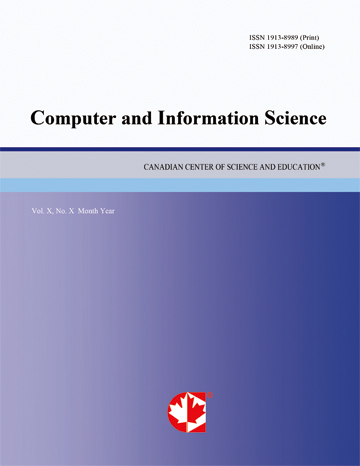ID-SOMGA: A Self Organising Migrating Genetic Algorithm-Based Solution for Intrusion Detection
- Olusegun Folorunso
- Oluwatobi O. Akande
- Adewale O. Ogunde
- Olufunke R. Vincent
Abstract
The study examined the detection of attacks against computer networks, which is becoming a harder problem to solve in the field of Network security. A problem with current intrusion detection systems is that they have many false positive and false negative events. Most of the existing Intrusion detection systems implemented depend on rule-based expert systems where new attacks are not detectable. In this study, optimization algorithms were added to intrusion detection system to make them more efficient. Self Organizing Migrating Genetic Algorithm (SOMGA) was integrated into intrusion detection system to obtain a more efficient intrusion detection system called ID-SOMGA. This study provides an equally efficient method to implement an intrusion detection system that returns very low false positives. Due to the complexities involved in security issues, and the implementation of the work, selected values of the network log was used to implement the system in order to reduce some of these complexities. The Self Organizing Migrating Genetic Algorithm – Intrusion Detection System was tested and values of the result were compared with that of an IDS with Genetic Algorithm Intrusion Detection System. In terms of detection rates, ID-SOMGA was found to be slower than an IDS with GA, the false positives in ID-SOMGA was lower than what obtains with genetic algorithm. Both schemes were able to identify new patterns almost in the same way. The ID-SOMGA system that was developed improved the security of systems in networked settings allowing for confidentiality, integrity and availability of system resources.
- Full Text:
 PDF
PDF
- DOI:10.5539/cis.v3n4p80
Journal Metrics
WJCI (2022): 0.636
Impact Factor 2022 (by WJCI): 0.419
h-index (January 2024): 43
i10-index (January 2024): 193
h5-index (January 2024): N/A
h5-median(January 2024): N/A
( The data was calculated based on Google Scholar Citations. Click Here to Learn More. )
Index
- Academic Journals Database
- BASE (Bielefeld Academic Search Engine)
- CiteFactor
- CNKI Scholar
- COPAC
- CrossRef
- DBLP (2008-2019)
- EBSCOhost
- EuroPub Database
- Excellence in Research for Australia (ERA)
- Genamics JournalSeek
- Google Scholar
- Harvard Library
- Infotrieve
- LOCKSS
- Mendeley
- PKP Open Archives Harvester
- Publons
- ResearchGate
- Scilit
- SHERPA/RoMEO
- Standard Periodical Directory
- The Index of Information Systems Journals
- The Keepers Registry
- UCR Library
- Universe Digital Library
- WJCI Report
- WorldCat
Contact
- Chris LeeEditorial Assistant
- cis@ccsenet.org
